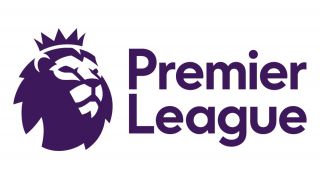
With millions of fans globally, the English Premier League (EPL) is one of the most exciting football leagues in the world. A lesser known fact is that the EPL is also one of the most valuable sports leagues of all time. This is in part due to the huge TV deals the EPL signs with broadcasters every three years.
Highlighting the mammoth demand for world-class football, the EPL sold the UK domestic rights to broadcast its matches for the 2016-2019 seasons for a whopping £5.1 billion – with the overseas rights going for an equally impressive £5.3 billion. This brings an enormous amount of money into the game, leading to the £90 million transfers and £300,000 per week wages that have become familiar to every reader of the sports pages in the national newspapers.
But for TV rights holders, we are starting to see a different story altogether. One of the biggest EPL rights holders, Sky, has seen profits fall by six per cent in the last 12 months as the broadcaster continues to be hit by the rising costs of live Premier League football. But where are these costs coming from? There are several opinions on this: from a drop in live football viewers to the rise of illegal video streams.
The situation is complicated by the current change in consumption patterns: with a recent report suggesting that viewers are moving from pay-TV to alternatives like OTT and IPTV. And, with a panoply of pirate sites on the internet, many fans will ask themselves “why pay to stream a football match over the internet when I could do it for free?” And, crucially, only a fraction are paying any attention to the obvious answer: because it’s illegal.
Piracy has always been dangerous to the pay-TV industry. Older traditional forms of piracy included modified original smart cards, cloned cards, and control word sharing. These and other forms of signal piracy have been largely eliminated by the current generation of conditional access systems, not to mention the fact that pirates needed specialist knowledge and expensive equipment to successfully steal content.
However, as the pay-TV industry’s technology developed – so did the pirates’, and content sharing via the internet was born. Because it was so much more accessible to the average consumer, online content sharing also represented an exponentially more damaging risk to pay-TV operators. Pirate content sources grew at a rapid pace, creating illegal streaming sites where pirates made money from advertising banners, pop-up ads and even malware. But web-based delivery could never fully recreate the lean-back experience of watching legitimate TV content on the big screen – until pirate IPTV devices came along.
IPTV devices have become a blight to the pay-TV industry, enabling families to watch illegal streams on their TV as if they were watching paid-for TV. To compound the issue, the quality of IPTV boxes is also improving with many now mimicking a real pay-TV user experience by incorporating OTT services like Netflix and more sophisticated user interfaces. All this means the pay-TV industry is up against serious competition when it comes to modern piracy. So what can content providers and broadcasters do to protect themselves against the pirates?
In March 2017, several of the UK’s major broadcasters gathered to discuss the issue of fully-loaded streaming media players. These set-top boxes are usually Android-based and use the open-source Kodi media player with pirate plug-ins that enable users to illegally stream pay-TV channels straight out of the box. There is no silver bullet when it comes to flighting this kind of piracy, however the key objective is to disrupt the supply and demand of illegal content, making piracy an unattractive, unprofitable, and risky business.
A ruling from the European Court of Justice in April 2017 may give hope to content rights owners based in the European Union. The Court ruled it illegal to distribute set-top boxes pre-loaded with any software that enables users to view illegal content. Over time, this will give legitimate content owners a more powerful legal basis on which to fight piracy but, in the meantime, the fight goes on.
So what can content owners and distributors do to continue this fight? Some of the larger organisations may create their own targeted anti-piracy programmes to protect their content. The more popular idea however is to engage strategic security partners like NAGRA who boast over 20 years’ experience in monitoring and protecting live and recorded content for over 130 international customers, including some of the world’s largest pay-TV service providers like Virgin Media (UK), Dish (US), and StarHub (Singapore).
Outsourcing content protection enables providers to benefit from a wealth of knowledge. Security partners understand the piracy landscape and can pinpoint where and when to hurt the pirates who are illegally copying and distributing their content. NAGRA works with customers to help them better understand where they can strengthen their defence, such as embedding their content with watermarks which allows monitoring tools to track who is illegally distributing a piece of live or on-demand content.
With the help of an experienced anti-piracy and cybersecurity expert like NAGRA, organisations such as the EPL can benefit from the support of investigators, security engineers, lawyers, and former law-enforcement agents. These additional resources enable providers to block millions of illegal streams, seize illegal pirate set-top boxes and websites, and prevent millions of pounds in lost revenue.
Anti-piracy services must constantly innovate to ensure they are outpacing the pirates. With the future of live sports broadcasts in the balance, the stakes are high. The final whistle hasn’t blown yet but with the help of state-of-the-art conditional access systems, digital rights management, watermarking technologies and anti-piracy services, content owners and distributors are better equipped than ever to ensure this is one match the pirates never win.
By Christopher Schouten, senior product marketing director, NAGRA






